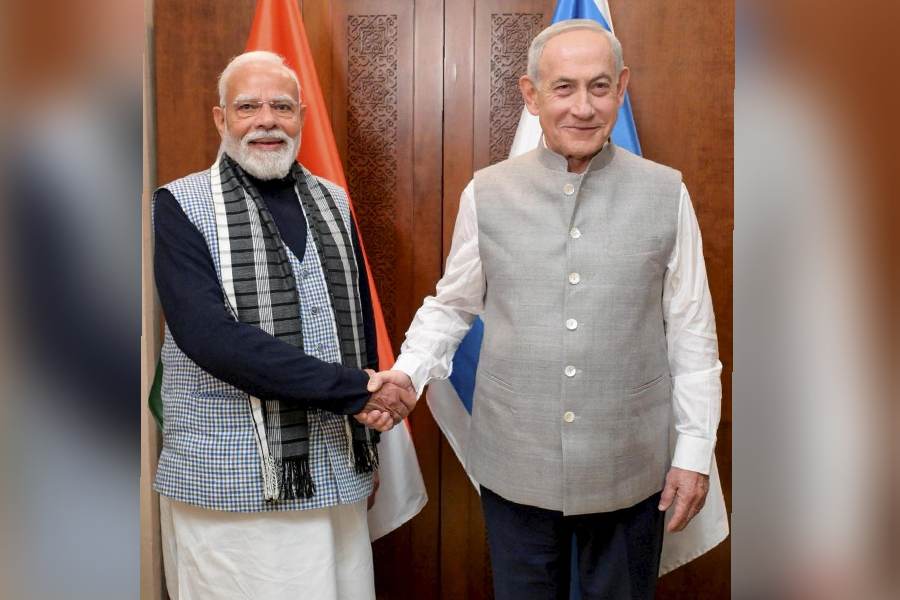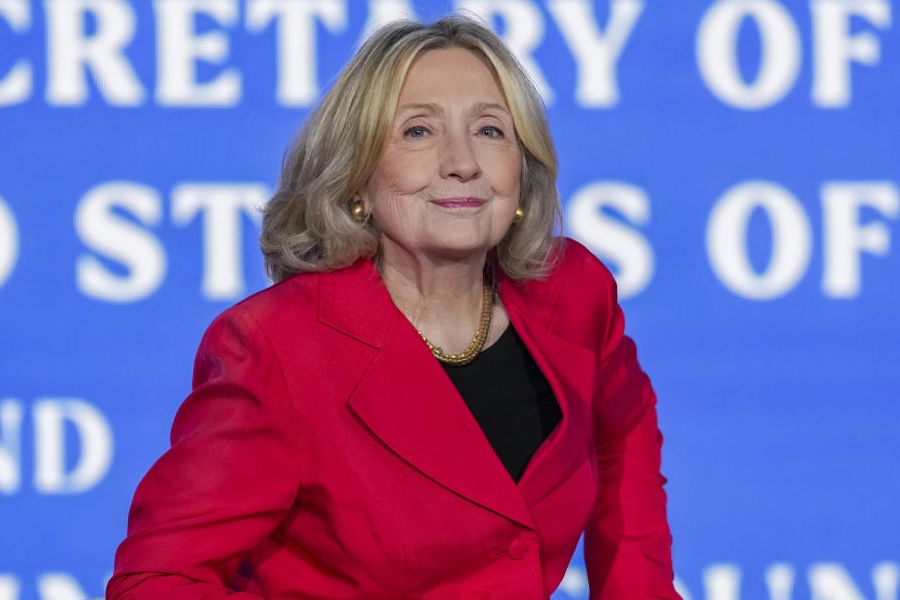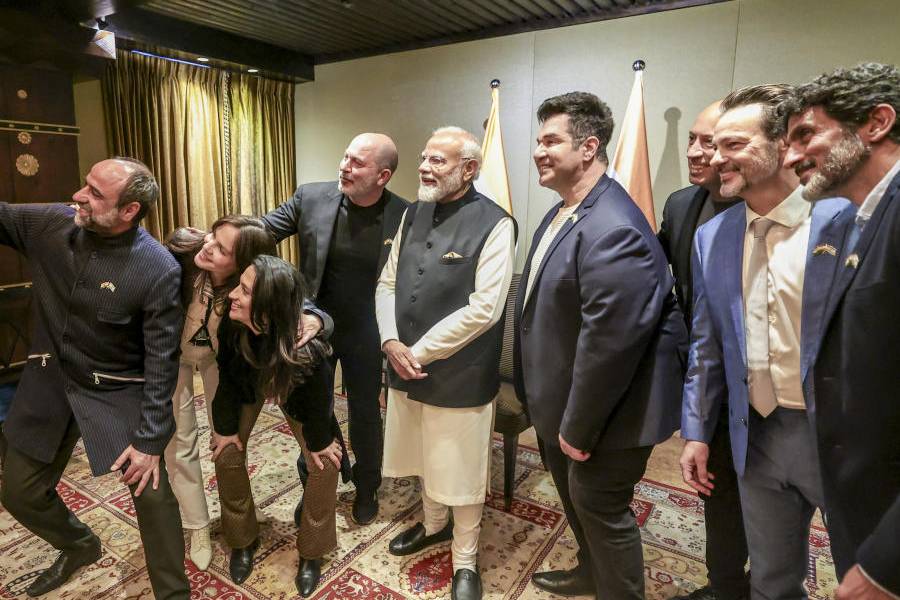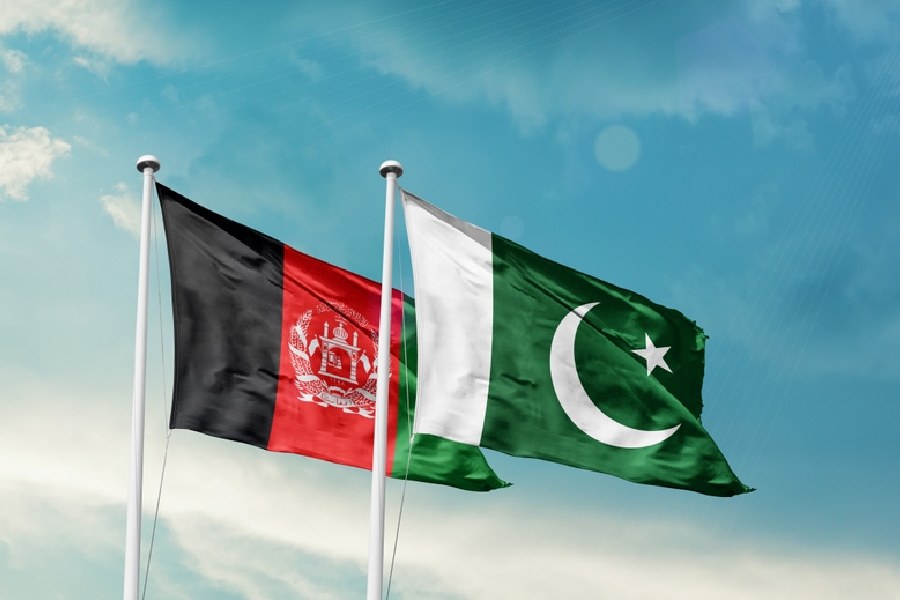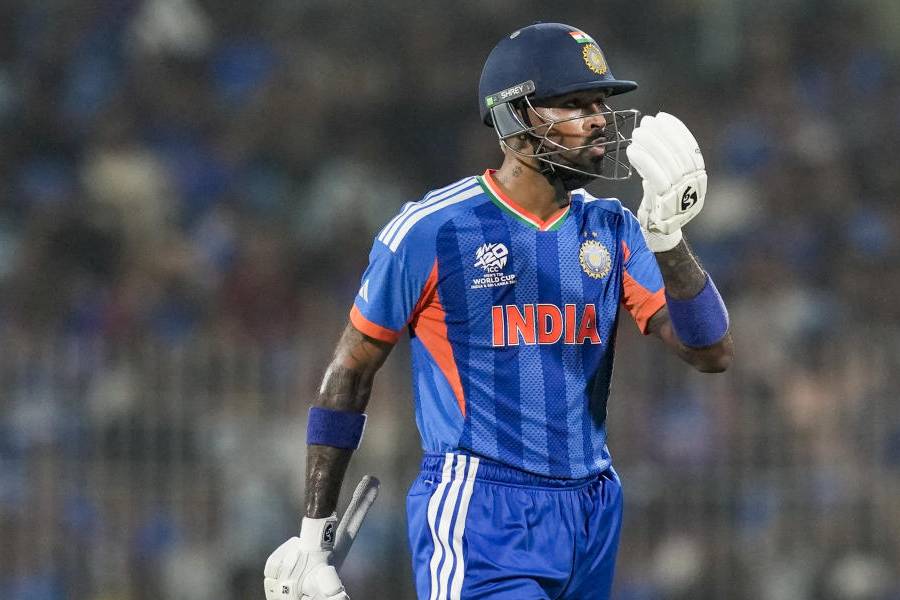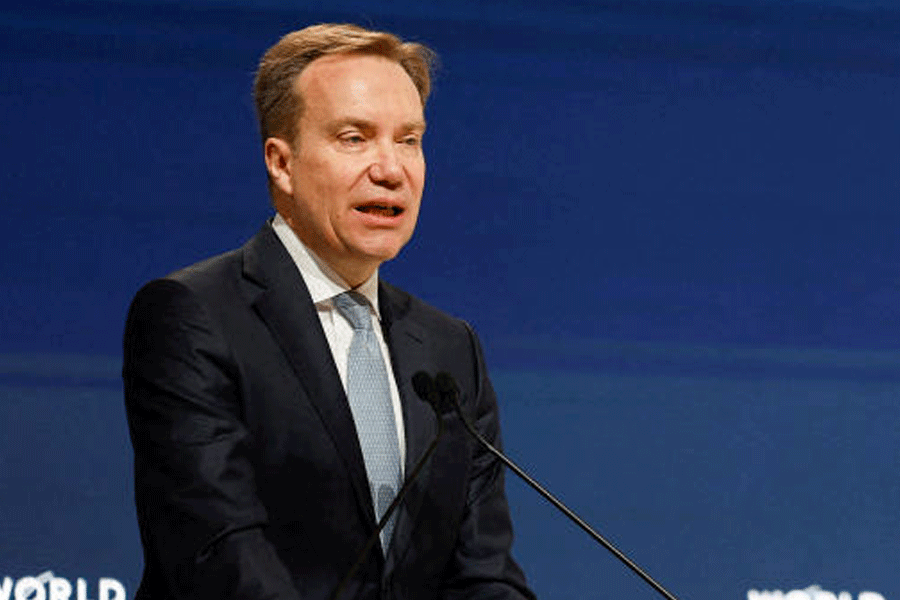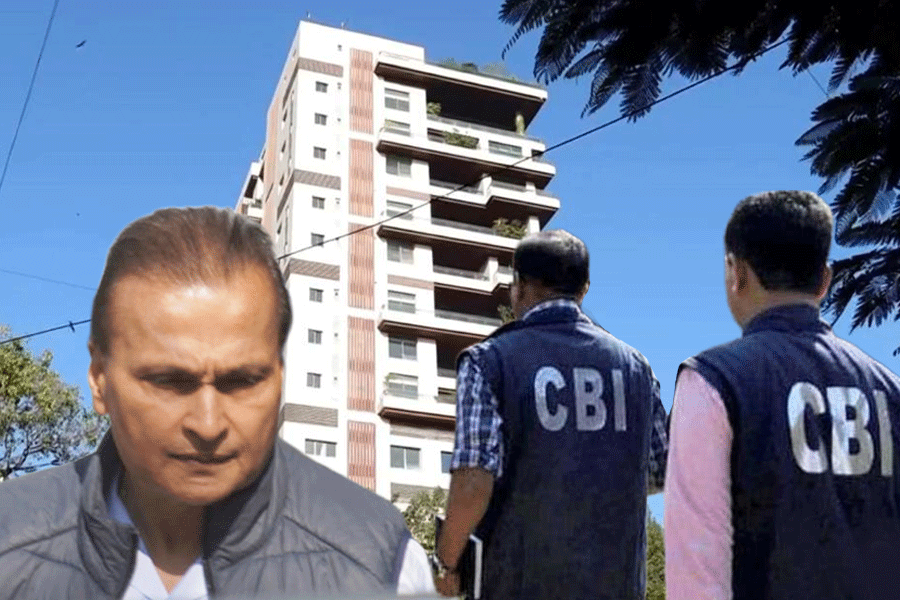 |
Banihal, Aug. 12: There is a lock on the burning Valley, two miles long.
We swept swiftly up the road from Jammu this morning, past Patnitop’s scenic pine resorts and the narrow gauge cut by the turbulent Chenab, but found a swirl of concertina wiring thrown across this high gateway into Kashmir.
Layers of security cordons stood blocking the Jawahar Tunnel, the longest manmade road duct in Asia and the country’s only land-link to the trouble-ridden Valley — police, the CRPF and then jawans of the Indian Army.
“Closed”, a gum-booted, gun-wielding sentry said, “until further orders.”
But why? “Orders,” he bluntly repeated, unyielding, “Can’t permit you to pass, not even at your own risk.”
It had begun to rain and the sentry’s little shortwave set was crackling in the slanted wind, spewing grim news from its oil-barrel perch. Processions pouring out in torrents across the Valley. Defiance of curfew. Violent engagement with security forces. Firing. Retaliation. Deaths and injuries. More retaliation. A chain of cause and effect ruinously whirring.
Bandipora, Ganderbal, Lafjan, Baramulla, Kangan, Rainawari, Haripora, Patang, Badgam, Watlar, Wusan, Lal Chowk, even Kishtwar which is located outside the Valley — a swelling directory of datelines fast staining the landscape.
“Ab pata chala kuchh kyon nahi jane de rahe?” the sentry asked sardonically as he arranged the concertina spools even more firmly across the mouth of the tunnel. “Haalaat kharab hain janab,” (Do you get a little sense now of why we are not allowing you? Things are bad, Sir.”)
 |
In the little highway hamlet of Banihal down below — the only Muslim majority pocket this side of the Jawahar Tunnel — the Valley’s tumult was beginning to echo. A band of men carrying green flags had gathered in the square and were calling out to residents on a megaphone. “Our brothers and sisters across Banihal are in trouble, let us tell them we stand in solidarity, let’s tell them we are with them!”
The shanty shops of Banihal’s one-lane bazaar lay shuttered, its nervous residents looking on from half-ajar windows. But slowly as the call rang out again and again, the band in the town square was joined by trickles from the bylanes and soon became a flaming mob. It was more than a kilometre long and spilled out on both sides of the Jammu-Srinagar highway, a charged column on the march.
More green flags began to wave about in the taut air and then roll the shrill slogans of Kashmiri insurrection. “Chalo Muzaffarabad!; hum kya chahte: azaadi; Pakistan zindabad.”
The elders frantically appealed for calm. “No commotion, please, no violence,” one of them cried out. “This is the hour of mourning. We must respect our dead.”
But youngsters on the fringe of the mob would have none of that. As the procession rolled up the winding road, en route to the mosque, they got more strident, fisting the air in the face of CRPF jawans and policemen. The closer the securitymen pressed the procession, the louder the slogans, the more ardent the green flags. “Pakistan zindabad; hum ko chhordo, Hindustan.”
The jawans, armed and ready to tear gas the mob at the first sign of trouble, held their fire; the procession held its protest to angered slogans, no more. But for three hours this afternoon, Banihal failed precariously close to the chaos of violence.
“Anything could have happened,” said a nervous but relieved Haji Abdul Majid Banihali, a local elder who was among the lead cast of this protest. “You can feel it in your veins, can’t you, the crowd and the forces are just testing each other? We got away with it today but I can’t say the same about tomorrow. There’s anger bubbling over what’s happening in the Valley.”
To either side of the protest, traffic lay coiled in the mountains like a dead crocodile’s tail.
Hundreds of trucks laden with goods on their way to the Valley and Leh beyond it. Wheat, pulses, oil, medicines, other packaged food. Half a dozen carriers packed with bewildered chickens clucking in their cages. Even a busload of Amarnath pilgrims from Maharashtra who had somehow blundered their way up to this impasse.
“We don’t know what to do now, where to go,” said Sudhakar Naik, who arrived with his family of five from Nashik. “We can’t go ahead and we are not being allowed to return because there is a curfew all the way down to Jammu. And it is getting cold.”
Up close to the mouth of Jawahar Tunnel, scores of more trucks lay girded along the bends, lost on the prospects of being able to proceed. All of them loaded with goods, all headed to the Valley, all posting puzzling questions on allegations of an economic blockade.
“We have been waiting two days at Banihal,” said an irate truck driver from Pathankot, carrying vegetable oils. “There was a disruption on the road for a few days about a fortnight ago but the road has been clear since. Who says trucks are not going? It is only here that the security forces have blocked our way, nobody else did.”
A little distance away, the sentry, now under an oversized olive parka to shield against the rain, was waving off newer arrivals with his gun. “Khabar nahi suni? Kashmir jal raha hain (Haven’t you heard the news? Kashmir is burning.)”


